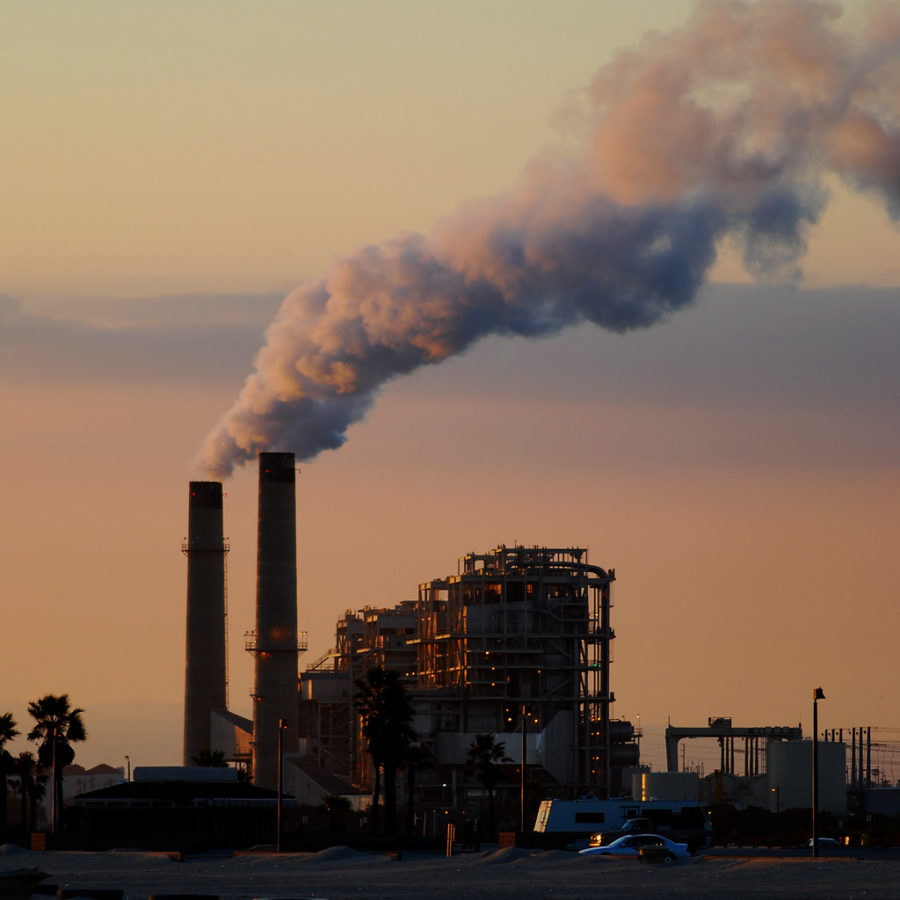How To Enact Corporate Responsibility
Photo by Creative Commons
A factory in Santa Monica emits pollution.
April 26, 2022
Companies continue to exploit the environment in order to maximize profits and have been let off the hook for decades because of their economic success. These companies will not change until they are forced to. Therefore, it is the responsibility of consumers – which includes all of us at LFA – in conjunction with the government to hold these companies accountable to their environmental responsibilities.
Generally, there is a global consensus that recognizes the energy, manufacturing, oil, agriculture, automobile, and fashion industries as the producers of the most pollution. Transportation also accounts for a large percentage of carbon and particulate matter emissions; Amazon is one major contributor. Household-name oil companies like Chevron, Exxon Mobil, and BP are responsible for about 2% of global carbon dioxide emissions each year. Some other major polluters include Vistra Energy and Berkshire Hathaway that own power plants, natural gas, and coal operations.
Much of these companies’ impact is apparent in developing nations where resources are extracted and factories are run. For example, Bangladesh is one of the most polluted and poorest countries due to economic colonialism by Western fast fashion companies. The World Bank found that 20% of industrial water pollution is from the dying of textiles which affects countries like Bangladesh that host several Western fast fashion companies who prefer the location due to its cheap labor. Excess chemical runoff from factories pollutes drinking water. Yet, companies are increasingly advertising their products as ethically produced despite the reality.
Companies frequently practice ‘greenwashing’ by advertising misleading information to make their products appear more sustainable than they truly are. For example, after heavy criticism of their fast fashion practices, H&M launched a ‘H&M Conscious Collection’ which was found to contain a higher share of damaging synthetic materials than their main line but still more expensive. Companies have the obligation to be truthful to customers rather than use the sustainability movement to increase profits.
The cycle is relative however; consumer demand and corporate greed allows companies to escape their obligations. Though companies should self-regulate their environmental impact, change will only come if it is encouraged by consumers, even if at the expense of their own convenience. This can be achieved by raising awareness about corporations committing environmental harm or choosing to buy from small, more sustainable businesses. Kevin Hagen, the AP Environmental Science teacher at LFA, claims, “Once consumers put up enough of a fight and say ‘no’ to these companies, that’s when change happens.”
However, consumers can only do so much in holding companies accountable. Some argue that the government should be more involved, and the carbon tax is one example of this as it imposes a fee upon corporations based on the level of carbon a company emits. In addition, there could be more federal regulation on groundwater pumping rates. For instance, in Willcox, Arizona, lax irrigation laws allow big corporations like Riverview to pump as much water as they want, not even requiring them to monitor how much water they use. Residents in the area have noticed their wells becoming shallower because of Riverview’s excessive pumping. Some excuse these corporations because they produce high profits and employment, but this dismisses the impact on public health.
We, the LFA community, can influence corporate environmental responsibility. For example, the LFA mailroom is abundant with Amazon and fast fashion packages, and the Atlas, Crown, and Warner parking lots are filled with gas fueled cars. We are consumers, and although buying from large corporations is often cheaper on the highschool student budget, we still have a responsibility to pressure these corporations to fulfill their responsibilities of preserving our earth.






































